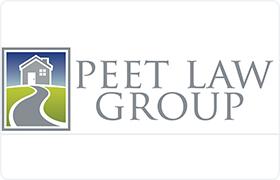North Concord Land Use & Zoning Lawyer, Vermont
Sponsored Law Firm
-
 x
x

Click For More Info:
-
Law Office of Fred V. Peet
55 Patchen Rd South Burlington, VT 05403» view mapReal Estate Law Vermont’s Real Estate Law Source
The Law Offices of Fred V. Peet, P.C. concentrates its practice on residential and commercial real estate transactions.
800-960-0161
Not enough matches for North Concord Land Use & Zoning lawyer.
Below are all North Concord Real Estate lawyers.
Charles D. Hickey
Real Estate, Estate, Commercial Real Estate, Real Estate Other
Status: In Good Standing
Hanne A.A. Trudeau
Landlord-Tenant, Traffic, Immigration, Wrongful Termination
Status: In Good Standing
 Fred V. Peet South Burlington, VT
Fred V. Peet South Burlington, VT Practice AreasExpertise
Practice AreasExpertise
